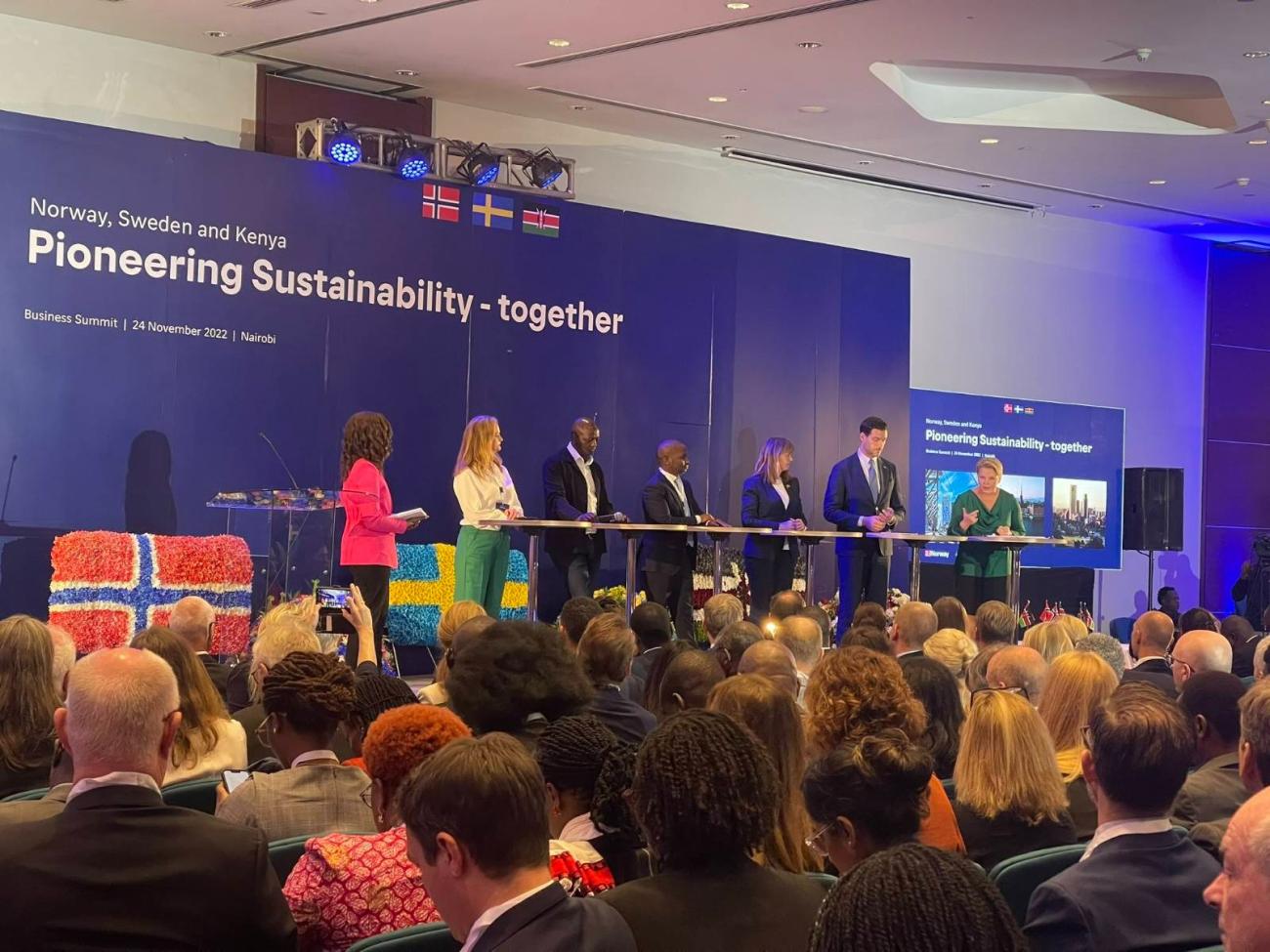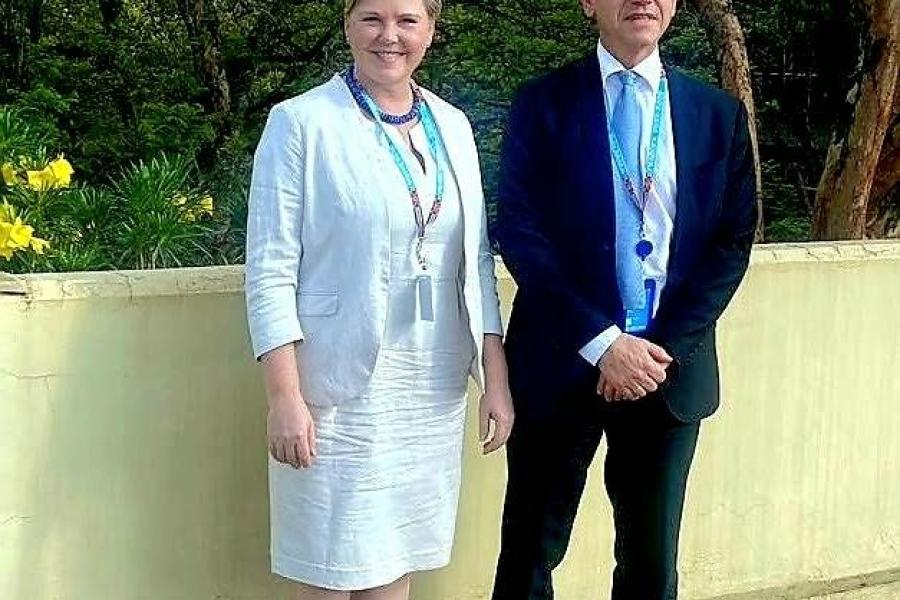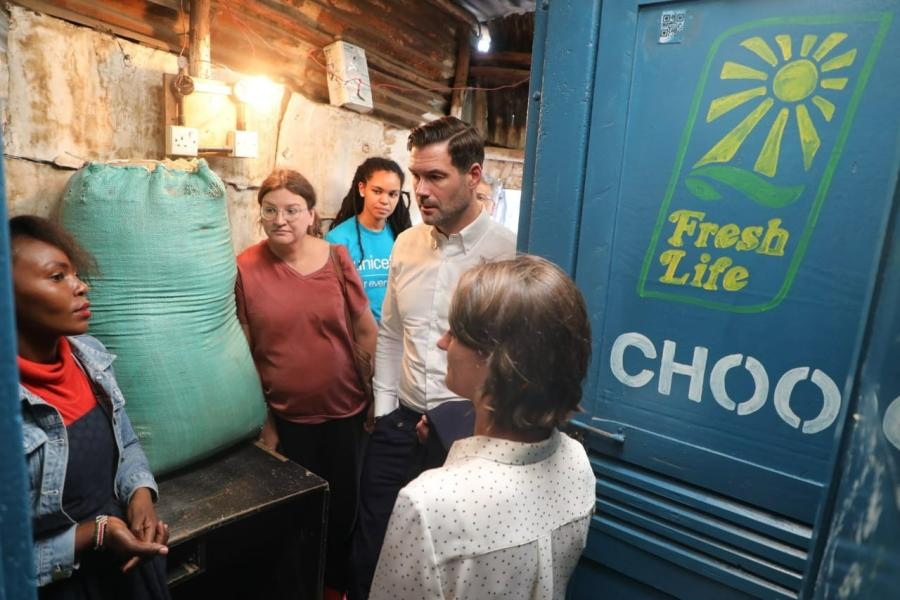Sweden, Norway and UN Kenya Commit to Supporting Kenya’s Green Transition

Sweden, Norway and UN Kenya commit to supporting Kenya through the current drought emergency and optimise Kenya's massive green transition potential.
Sweden, Norway and the United Nations working together to support Kenya through the current drought emergency and onto the massive economic potentials of the "green transition" - these were the key themes when the new Swedish Minister for International Development, Johan Forssell, Norwegian Minister of International Development, Ms. Anne Beathe Tvinnereim and UN Resident Coordinator in Kenya, Stephen Jackson sat down together during the bilaterals following their recent visit to Kenya.
Kenya's deep drought emergency took centre stage in the discussions with both delegations. Its unprecedented depth, in its severity and longevity, represents something completely new, triggering an intense response from the Government.
“Kenya is on the frontline of the climate emergency. The ravages of the Climate Emergency and extreme weather conditions represent Kenya's new normal.”
Dr. Stephen Jackson
The Norwegian Minister, Ms. Tvinnereim, appreciated the great work that United Nations is undertaking and further called on UN Kenya to develop a programming model that is adaptive and flexible to the changing context.
“UN funds need to be flexible to respond effectively to emergencies and emerging opportunities,” said Ms. Tvinnereim.

The drought has affected the whole region, and it was generally agreed that it was vital to sustaining support to Kenya both for Kenya itself and for the strategic role Kenya plays in the region.
But the crisis also presented an opportunity. Both bilateral discussions with Sweden and Norway focused on the huge economic development and investment possibilities under the green transition, facilitating and investing in Kenya’s green transition.
In a bilateral, the Swedish Minister and the Resident Coordinator discussed how Sweden and the UN might together support the green transition on the country level and how Swedish expertise and the Swedish private sector could benefit through new business opportunities and creating new green markets with new green jobs, thereby leapfrogging an outdated and unsustainable development model.
The Resident Coordinator also appraised the delegations on the UN "development system reforms". The reforms had strengthened the UN's ability to act as One during the COVID-19 pandemic. And now, the convening power and the role as an honest broker of the RC was facilitating rapid response and smooth communication between the Government, the UN agencies and private sector actors all coming together in Kenya. Joined-up actions by the UN agencies would now drive UN Kenya's new "Cooperation Framework" (2022-2026), enabling scaled-up and accelerated development impacts.
Finally, the Swedish Minister and the RC further discussed how the UN could push for regional economic integration in the Africa region, such as the East Africa Community. Regional trade was still an under-exploited driver for Kenya's development - here again, there was much opportunity for Swedish energy and entrepreneurship, given the two countries' historical cooperation.

The delegation from Sweden and Norway also got to experience the UN work in Kenya through a range of field visits and engaged with young entrepreneurs, women’s groups, researchers, conservationists, Government representatives and the broader UN family.






